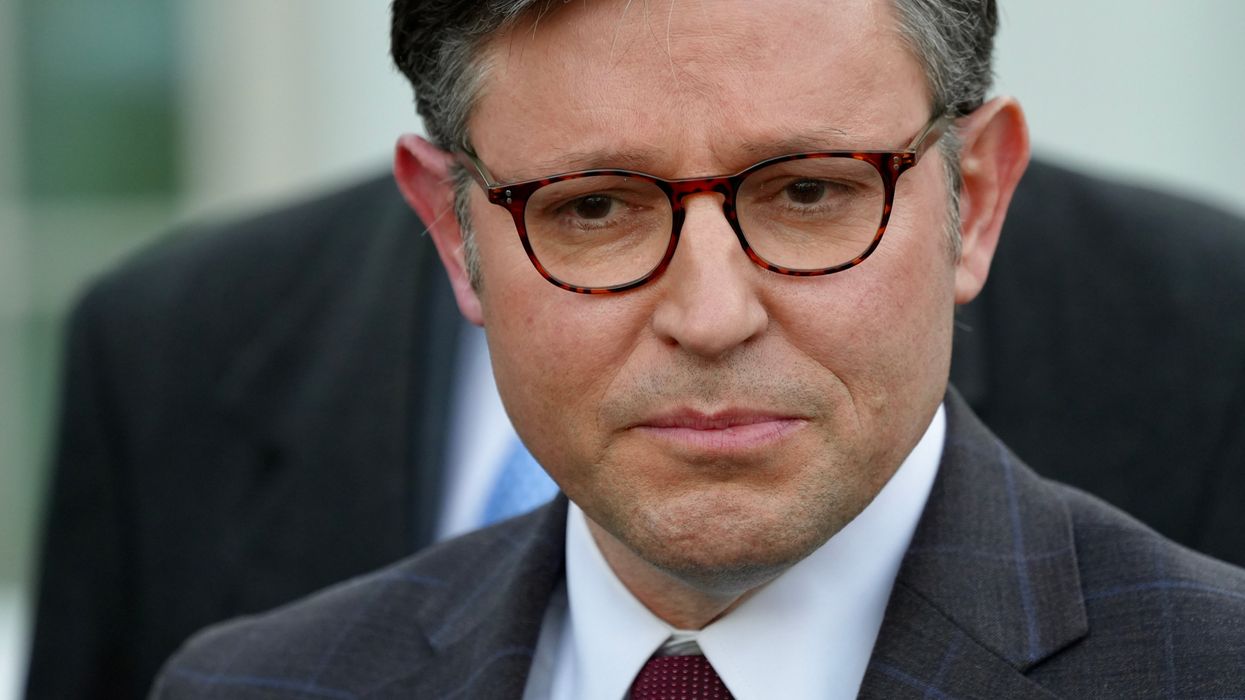Economists reveal what’s really hiding in the GOP tax bill

House Speaker Mike Johnson on January 15, 2024 (Andrew Leyden/Shutterstock.com)
House Speaker Mike Johnson on January 15, 2024 (Andrew Leyden/Shutterstock.com)

House Speaker Mike Johnson on January 15, 2024 (Andrew Leyden/Shutterstock.com)
The GOP’s latest incarnation of the House budget bill hides $1 trillion in new U.S. debt, say analysts.
Financing President Donald Trump’s expensive 2017 tax cuts is no less expensive this time around. Bloomberg reports the cost of Republican lawmakers’ draft plan to extend the cuts currently sits at $3.8 trillion over the next 10 years in one official estimate.
“The reality is likely much higher, thanks to the use of budget and political tools designed to minimize the appearance of the fiscal hit, according to independent analysts including former Republican staff members,” Bloomberg reports.
READ MORE: When the sleeping giant awakens, Trump will be toast
Budget specialists usually calculate the cost of legislation — or score — over a period of 10 years, however President Donald Trump’s pledges to remove taxes on tips and overtime expire after just four years in the latest bill. When Congress extends the popular tax cuts beyond their expiration date — which they likely will — the cuts will combine with preexisting tax cuts for wealthy individuals and businesses to blow the deficit.
As they did in 2017 when they first passed Trump’s tax cuts, Republicans are defending the incoming hit to U.S. revenue by claiming the cuts will grow the economy, in the absence of history and fact. Bloomberg also reports GOP advocates claiming the president’s ever-changing tariff policies coupled with Elon Musk’s ever-diminishing claims of savings via DOGE cuts will ramp up trillions of dollars of added revenue to federal coffers.
Analysts say the end result of deeper national debt could “raise concerns among investors and economists about the scale of future borrowing needs for a government whose debt load is on track to surpass 118 percent of the economy’s size by 2035, potentially undermining confidence in US securities.”
Both Republicans and Democrats use budget tricks to downplay budget damage, but Committee for a Responsible Federal Budget Senior Policy Director Marc Goldwein called the scale of the potentially hidden effects in the GOP tax package striking.
READ MORE: The other shoe drops: Deals with Trump are already backfiring on top law firms
“The entire reason they did this temporarily was to reduce this cost,” Goldwein told Bloomberg. “They are basically trying to hide” the additional costs, he said.
Trump has dubbed the legislation, “one big, beautiful bill,” but Barclays Plc economists described the plan as “One big, beautiful” deficit.
“Investors in longer US bonds are unlikely to be happy,” they wrote.
Read the full Bloomberg report here.